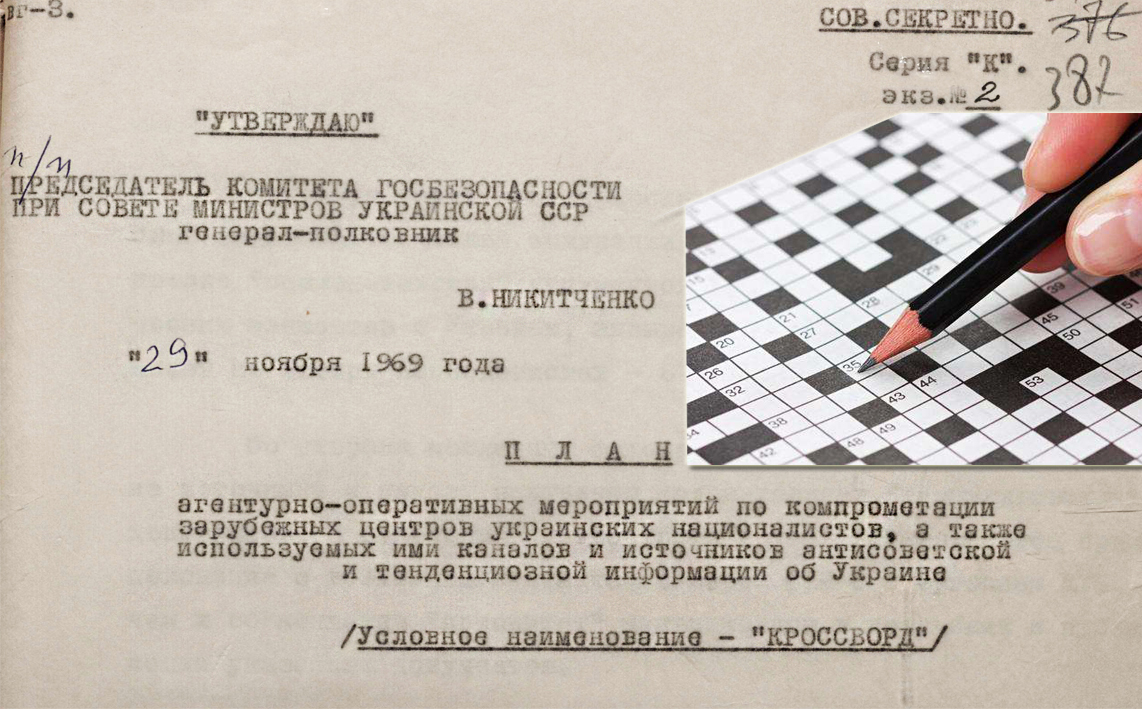Unveiled History: Failure of the Operation “Crossword”
6/5/2025

Operation “Crossword”, organized by the kgb in late 1969, was aimed at disrupting the unification processes among Ukrainian emigrants, in particular among various OUN factions. According to the kgb’s plans, the intensification of cooperation between Ukrainian nationalists in France, their foreign policy activities, and efforts to popularize Ukrainian culture and the truth about soviet reality were seen as a direct threat to the ussr. A special target was Oleh Shtul-Zhdanovych, who managed to unite different OUN factions around the idea of mutual understanding.
The kgb chose a multi-level disinformation tactic: through falsified documents, staged “repentance” of agents, anonymous “samizdat” publications, and fabrication of links between leaders and soviet special services. The name “Crossword” symbolized the intricate structure of the operation – disorientation “horizontally and vertically” to cause mutual suspicion, distrust, and internal disunity in the camp of emigrants. According to the Chekists, that was supposed to lead to mutual accusations between different branches of the OUN and compromise nationalist structures in the eyes of their Western partners.
However, the main goals of the operation had never been achieved. Despite the active reporting on the implementation of the plan’s items – marked “produced,” “distributed,” and “carried out” – the emigrant community did not succumb to provocations. Ukrainian activists showed awareness of the kgb’s methods and actively exposed them in their publications. The newspaper “Shlyakh Peremohy” directly pointed out the typical mistakes of soviet provocateurs, while the lack of trust in anonymous sources helped to avoid an internal split.
As a result, the Operation “Crossword” became an example of a typical soviet special operation that, despite its scale and costs, proved to be ineffective. Instead of paralyzing the Ukrainian nationalist movement, it contributed to its consolidation, especially around the figure of Oleh Shtul-Zhdanovych, who was re-elected Head of the OUN Provid in 1974. Moreover, he became one of the founders of the World Congress of Free Ukrainians, which finally proved the futility of the kgb’s attempts to destroy the Ukrainian national movement abroad.
